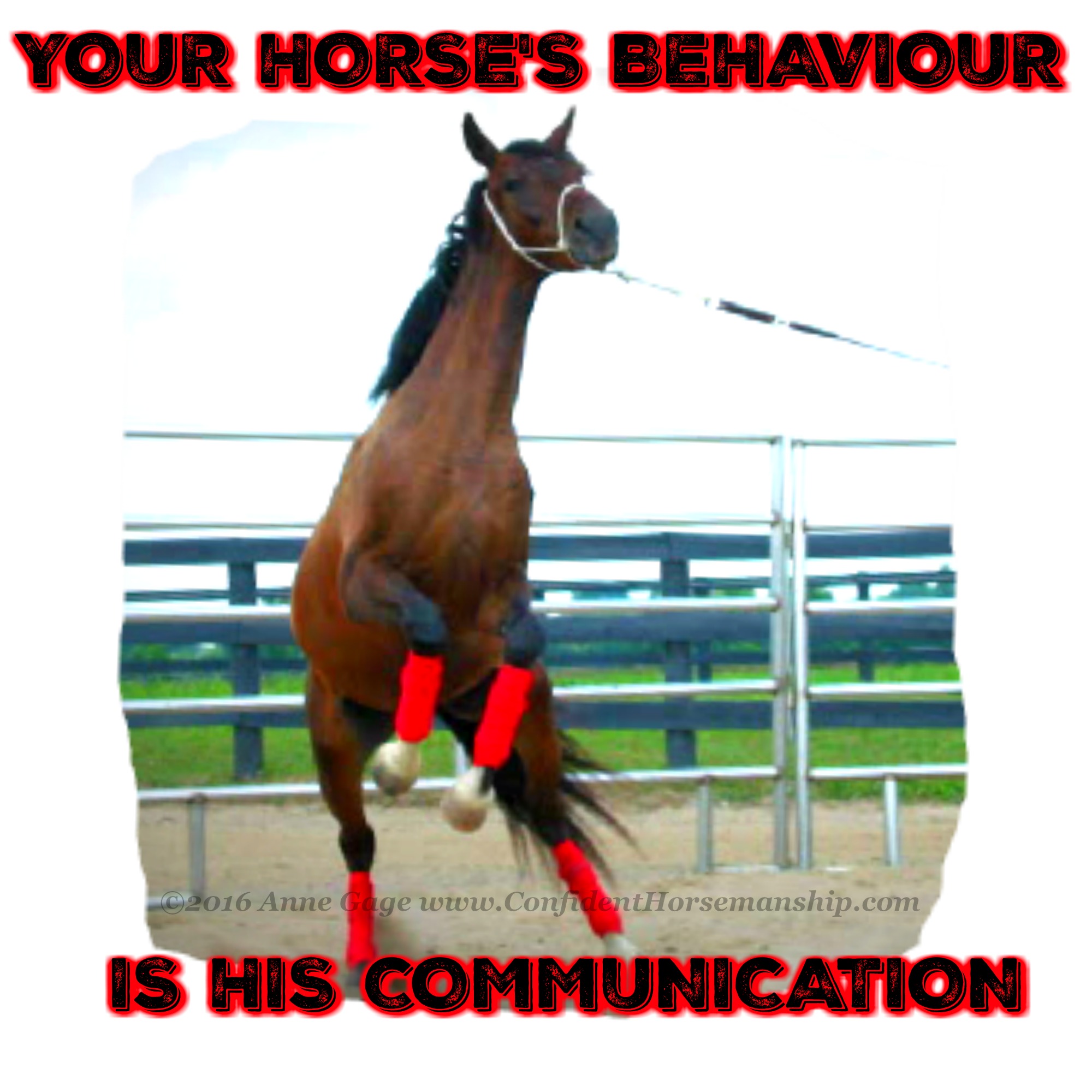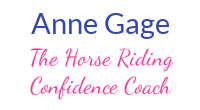By Anne Gage of Confident Horsemanship
Has your trust and confidence in your horse been damaged by his aggressive behaviour? Aggressive behaviours include kicking, striking, biting or even forcefully pushing through you to get at the feed bucket.
The first question to ask with any unwanted behaviour is “WHY is the horse exhibiting this behaviour?”
Your horse’s behaviour is his communication. You can ignore what your horse is trying to tell you by punishing him; or you can listen to him and look for what’s really causing the behaviour.
Unwanted behaviours are generally caused by by physical pain (eg. gastric ulcers, ill fitting tack, undiagnosed muscle or joint pain) or mental stress. (eg. fear, confusion, no escape). Using punishment of any sort (eg. shouting, hitting or gadgets) will only increase the stress and pain your horse feels. While one behaviour may be eliminated, it will likely be replaced by another or your horse will develop learned helplessness. He gives up and shut down emotionally.
Here are 2 examples of aggressive behaviour, their possible root causes and ways to resolve the problem.
- Kicks the stall or at other horses at feeding time. Possible causes include pain from gastric ulcers or the need to guard his food because he feels threatened. Guarding is often seen in horses who have been experienced starvation or very limited resources in a herd.
A commonly recommended solution to this problem is using kicking chains or tying the horse’s hind leg to his halter. It only makes the situation worse for the horse. If he is suffering from ulcers, anticipation of the food causes the release of digestive juices irritate his gut even more.
If he kicks, he feels more physical pain; and if he can’t express his anxiety and pain, he becomes even more anxious and stressed. If he feels the need to guard his food and is unable to kick, he may escalate to other dangerous behaviours like striking or biting.
What to do Instead:
- Get a veterinary examination. If ulcers are diagnosed, they can be resolved with medication and diet.
- Feed him away from other horses. When he feels less threatened he’ll be less likely to kick out, and he’ll be more relaxed while eating which is better for his overall well being.
- Crowds you and displays threatening body language (eg. ears pinned back, mouth and nostrils pinched). Pain and food guarding may also be possible causes of this behaviour. It’s also a sign that your horse does not recognize you as his trusted and respected leader. Common responses of shouting, hitting or tying the horse create an adversarial situation where both you and the horse are feeling threatened and stressed.
What to do instead:
- Set clear, consistent boundaries for you personal space every time you’re with your horse. Only allow your horse into your personal space when he displays calm, passive body language.
- If your horse is pushy or shows strong, excited or threatening body language, send him away firmly with energy that equals his. Use a rope or a whip to extend your space if necessary, but only direct it towards his body (chest, shoulder, barrel or hip) and never into his head.
The bottom line – When you eliminate the root cause of a behaviour, it can be resolved without punishment. Build your relationship with your horse on a foundation of mutual trust and respect, and you’ll both feel safe and more confident.
There are lots more practical and in depth tips on improving your Confidence and your Partnership with your horse in my book “Confident Rider, Confident Horse: Build Your Confidence While Improving Your Partnership with Your Horse from the Ground to the Saddle”. Click here to order your copy today!
Read the next Article – Separation Anxiety: 5 Essential Tips to Help Your Horse Feel Calm With You
Anne Gage started Confident Horsemanship in 2002 after suffering the loss of her confidence for riding. As she worked on regaining her confidence she discovered that many horse women were suffering in silence – thinking they were alone. Anne works with horse women to regain their CONFIDENCE and PASSION for riding while building a PARTNERSHIP with their horses that they deserve.
